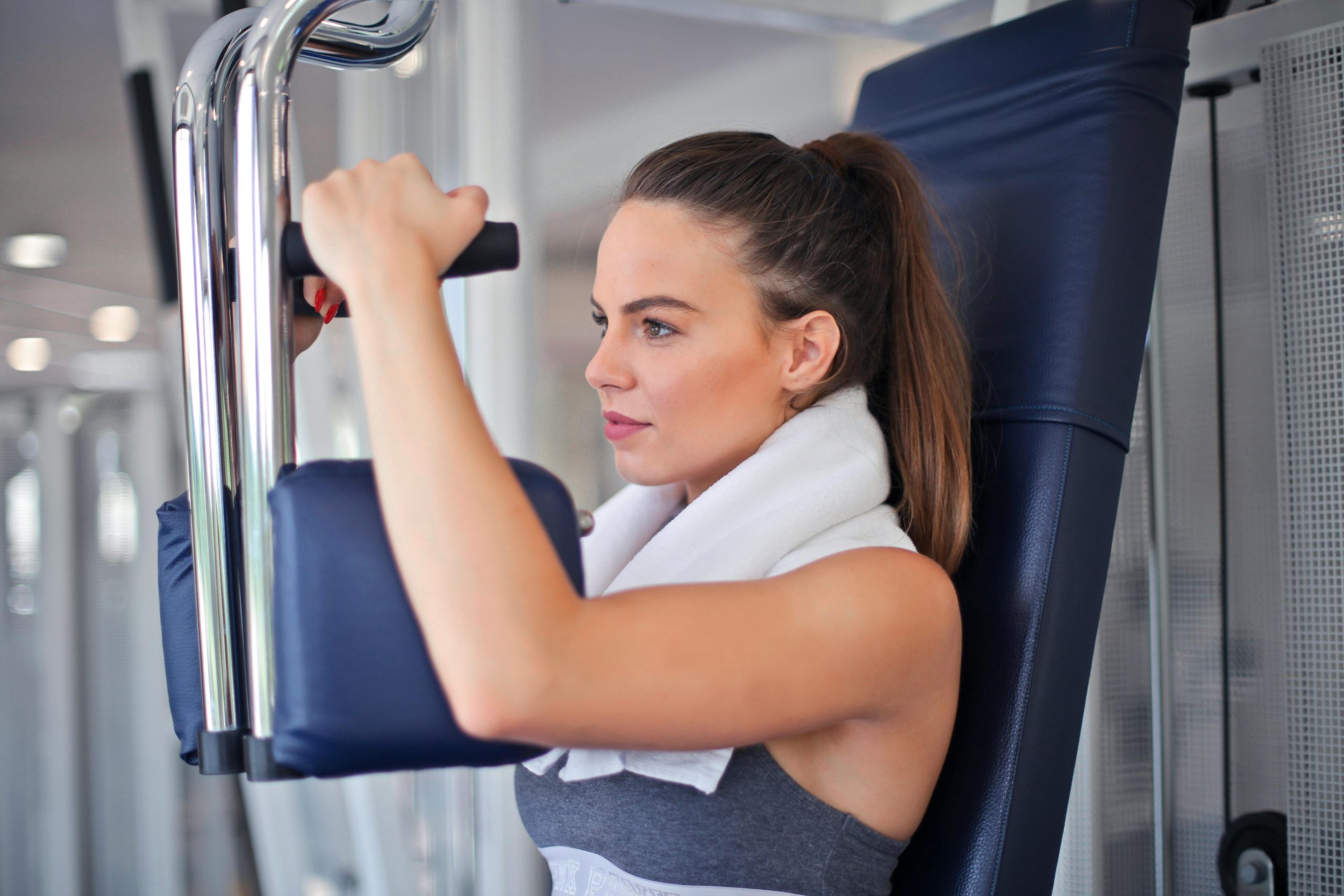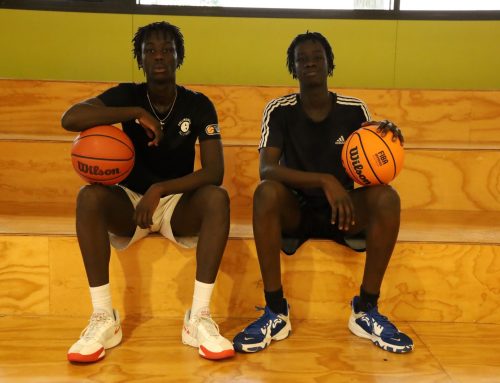
How do Athletes Lose Weight And Maintain Peak Performance?
We admire athletes for always having impressive physiques and roaring moves with peak physical performance. However, achieving such a level of fitness requires dedication and a healthy body weight. It is rather challenging to balance weight loss with maintaining optimal performance levels. This requires a strategic approach that combines nutrition, training, and recovery techniques.
It might look easy to lose weight just by exercise that athletes often do to compete in the rounds. But this is not always true. While spending most of your hours in training, you can get the idea that you can eat anything. And by doing so, you eat more than you burn leading to a few more pounds. The nightmare!
On one side, carrying excess weight can hinder agility, speed, and endurance. On the other side, cutting down calories too much can actually haunt your performance and this way you can get injuries as well. So, how to do weight loss while simultaneously maintaining peak performance? Read on to find out how athletes lose weight and check out 7 easy weight loss tips without compromising performance.
Does Body Weight Matter In Sports?
It’s not a straightforward question. Body weights do matter a lot in all of the physical activity let alone the sports. However, its significance varies largely due to the nature of the sport and the physical requirements of each athlete.
Body weight can impact sports performance. Therefore, it’s essential to approach healthy weight management. Of course, body weight is important for determining athletic success but other factors such as body fitness and muscle mass also count.
Sometimes other factors dominate the weight. For example, in basketball, height and speed dominate the body weight.
Additionally, some sports require a light body weight like Gymnasts who strive for feather physique to enhance agility. Meanwhile, weightlifters do different weight classes to get heavy bodies with increased muscle mass for load bearing.
Must Read: Top 5 Sports For Weight Loss!
Is Athletic Performance Dependent On Weight Of Players?
The short answer is yes, but it is always not true. Well, weight can be a parameter to assess the athletes and their performance. However, explaining the performance of an athlete with respect to weight is complex. It is a lot easier to measure the performance index of the athletes with other factors as well.
Alongside weight, body composition also accounts for an athlete’s physical condition. Body composition may include lean mass, fat, and bone density.
Thereby athletes and coaches tend to strike the ideal balance between weight and physical strength. The goal is not merely to attain a certain weight but to maximize functional fitness and performance capabilities.
Can Weight Loss Hurt Athletic Performance?
Weight loss indeed affects an athlete’s capacity negatively and positively. This highly depends on the approach taken.
If you are approaching rapid weight loss, you can lose both muscle and fat, which can be a big no for performance. Muscle tissue is the engine that powers athletic movement. And its depletion can decrease your body’s power. Yes, rapid weight loss is related to decreased endurance capacity, muscle strength, and anaerobic performance.
However, if weight loss is gradual and slow, it can potentially improve both strength and endurance. In addition, you can stay safe from the risk of chronic diseases.
Hence, athletes should eat 300-500 calories a day to preserve lean body mass and minimize performance losses.
You can also lose weight while training. Check out our weight loss training bundle to slim down!
How To Balance Peak Performance And Weight Loss?
You should align peak performance and weight loss goals. Of course, it needs nutrition, training, and lifestyle choices. Here you go with the tips to find the right balance:
- Consume 450 calories per day.
- Eat enough complex carbs, proteins, and fats.
- Relax and sleep for 8 hours to prevent overtraining.
- Lose weight slowly such as only 0.25–1 pound per week.
- Keep in check your progress and change your weight loss plan accordingly.
Also Read: 7 Sleep Hacks That Pro Athletes Follow For Peak Performance
What Science Says About Losing Weight And Maintaining Performance?
Science has explained the conditions where weight loss supports performance. A study clear that slow weight loss can help in burning fat without losing muscles.
However, research also confirms that sometimes weight loss decreases performance. Mainly it affects the mental and emotional health of the players. This situation increases stress and even causes disordered eating patterns. These mental burdens can also disturb the focus and decision making eventually hindering performance.
7 Easy Tips To Lose Weight For Athletes Without Compromising Performance
Weight loss for athletes can be easy with some delicious weight-loss foods, training and exercises. Additionally, you can also read the following tips to trim your body.
1. Have More Complex Carbs
Cutting too much of the carbs from the diet can hurt athletes. But a little reduction in carbs (around 45% per day calories) during the off-season can help you lose weight while providing enough energy to survive the workouts.
Just stay away from refined grains and sugars instead try to fill your meal with whole grains like quinoa, brown rice, and oats. They provide energy whole day long without raising blood sugar.
One thing to note is never skip carbs during game season because this is the time when you are in dire need of them. Research is evidence that the 70 % of carbs in a weight loss diet can support your sports performance.
2. Increase Protein Intake.
Protein has a great role in sports nutrition. There is enough evidence that a higher intake of protein while following a weight loss meal plan can help the fat-free mass preservation and reduction in the body weight plus waist.
You have to take about 0.8-1 gram of protein per pound of body weight per day. Moreover, you should also try protein pacing which means eating proteins in 5 meals a day with each meal carrying not more than 30-40g of protein.
Also, protein is essential for repairing and building muscles, especially during weight loss. This is crucial for athletic performance. It not only helps preserve muscle mass but also boosts metabolism, making it easier to shed unwanted pounds while maintaining performance.
Meet Your Protein Needs With The Activ Nutrition’s Whey Protein Powder!
3. Plan Pre- And Post-Workout Nutrition
When you are in the middle of losing weight, the timing and the portions of your meals become very important especially if you are working on your performance goals as well. Nutrition is equally needed as an exercise to prevent overtraining and becoming accustomed to a weight loss routine.
Starting an intense training without eating can put your efforts down the drain while eating randomly can hinder your recovery. Timely nutrient delivery before and after workouts can support performance and recovery.
Here is the ideal nutrition plan before and after workouts to get maximum performance output:
Pre-workout: Have digestible carbs and protein 30-60 minutes before exercise.
Post-workout: Replenish glycogen with carbs and protein within 30 minutes after exercise.
4. Do Strength Training Regularly.
More to add with the protein is to work on strength training sessions. Strength training helps build muscle mass more effectively than cardio. It can further increase your metabolism to produce an afterburn effect. This process uses more oxygen to help you burn more calories even at rest.
A study can confirm that the combination of the protein diet and strength training can keep up the metabolic rate during weight loss. It also stimulates hormone production.
So resistance exercises should be part of the workout routine at least 2-3 times per week. The main focus can be on compound movements like squats, deadlifts, and rows. Not only does strength training burn calories during the workout, but it also supports your weight loss efforts to perform well.
Try Strength And Muscle Supplement To Complement Your Training!
5. Reserve Weight Loss Efforts For The Off-Season.
Weight loss during the peak season can hinder your performance because of the sudden changes in the body. During peak training periods, your body needs sufficient energy to perform at its best. Hence it can give you a tough time due to heavy workouts especially if you are losing lean mass.
For the athletes who are just interested in casual weight loss to look dandier on the field, you can lose weight just by doing your regular training with a few weight loss exercises while preparing for the competition. This gradual weight loss usually does not hurt your performance if you are taking enough nutrition as well.
But if you are dieting too much and doing drastic weight loss, it can haunt you down to the core that you may be subjected to the illness. Therefore, the good time to lose weight is the off-season when you have enough time to digest the hard training while supporting your weight loss goals.
6. Proceed At Slow Pace.
That said slow and steady wins the race. It also sits well with the concept of athletic weight loss.
Losing weight too quickly can drop your energy levels and cause nutrient deficiencies. There will be sudden changes your body cannot adopt therefore take things slow and let your body get used to it. Avoid rapid weight loss, which can negatively impact performance and increase the likelihood of injuries.
While rapid weight loss can help you trim down faster it has bad consequences on body recovery and physical health. Instead of trying to drop weight quickly, do it slowly. So aim to lose no more than 1-2 pounds per week. The slower pace allows your body to adjust and adapt thereby minimizing the risk of muscle loss and fatigue.
7. Focus On Time-Restricted Feeding.
Crash diets are the root of disasters meanwhile timely feeding can save the day. Time-restricted feeding or call it intermittent fasting, may improve metabolic health and speed up fat burning.
Rather than limiting calorie intake for a day, you can keep splitting the caloric intake for a specific time limit. By restricting your eating window to a certain number of hours each day, typically 8-10 hours, you can naturally reduce calorie intake and improve insulin sensitivity.
If you don’t know TRF, then you can take it as the 20-hour fast following a 4-hour eating. Go ahead and experiment with different fasting protocols to find what works best for your schedule and performance needs.
Learn What Basketball Athletes Eat For Best Performance!
Other Weight Loss Tips For Athletes
- Have a good sleep
- Drink enough water.
- Monitor diet portion
- Stay away from stress
- Time your meals strategically
- Slow down and enjoy your meals
- Try glycogen-depleted training sessions
How Pro Athletes Lose Weight?
Pro athletes shed pounds by
- Making personalized nutrition plans
- Joining periodized training programs
- Eating supplements like protein powders
Jump On Activ Nutrition To Get the Best Of The Sports Supplements!
Ending Remarks
Athletes can lose weight without worrying about their performance. Of course, slimming down is possible and athletic performance can be maintained as well. As gradual and slow weight loss can boost endurance and strength over time, it means that the weight loss journey can be beneficial in the end.
If you are an athlete and trying to maintain that Greek physique with tuning abs, eat more carbs, protein and maintain your strength training sessions. This way you can minimize the sudden decline in performance that is common while trying to lose weight.
Just do the slow weight loss and save the hard efforts for the off-season. In addition, gradual weight loss can give you long-term benefits and eventually, you will get the desired results.



